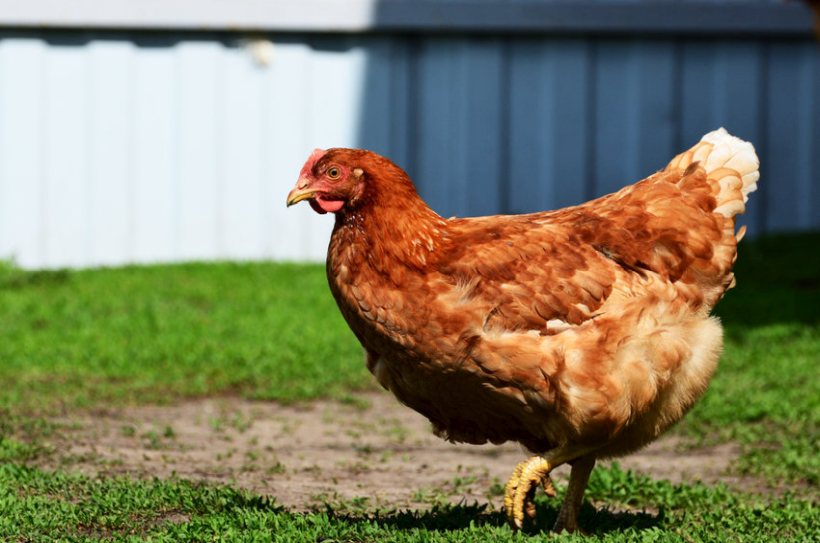Bird flu: Poultry housing order for parts of North Yorkshire

A poultry housing order has been announced for parts of North Yorkshire following a number of confirmed and suspected cases of bird flu in the area.
Tougher localised measures were introduced from Sunday night (21 November), namely in the districts of Harrogate, Hambleton and Richmondshire.
It is now a legal requirement for all farmers and bird keepers in these areas to keep poultry and captive birds indoors and to follow biosecurity measures.
Defra said the order was introduced in order to limit the spread of avian influenza, which is causing concern for authorities following a recent uptick in cases.
The department confirmed several new outbreaks of the H5N1 strain of bird flu on Sunday, including in Norfolk, Cheshire, Essex and North Yorkshire.
All cases in recent weeks have been confirmed as H5N1 and as highly-pathogenic, meaning the UK is no longer free from avian influenza under the World Organisation for Animal Health (OIE) rules.
The government's Chief Veterinary Officer, Christine Middlemiss urged bird keepers to act immediately in response to the new housing localised measures.
"We have not taken this decision lightly, but it is the best way to protect your birds from this highly infectious disease," she said.
”I urge all bird keepers to be vigilant and take all necessary steps to implement the highest standards of biosecurity.”
It comes after an Avian Influenza Prevention Zone (AIPZ) was declared across Britain, which has been in effect since 3 November.
Northern Ireland then followed, with authorities announcing an AIPZ on 15 November.
Chief Veterinary Officer for NI, Dr Robert Huey, said the measures were necessary to help prevent any contact that wild birds might otherwise have with poultry or captive birds.
"It reduces the risk of contamination from the virus to food and water provided to poultry and other captive birds therefore reducing opportunity for the disease to spread between premises," he said.
“I am urging all flock keepers, even if you keep just one bird, to take action now to improve biosecurity in order to prevent an incursion of the disease into our poultry flock.
"If avian influenza were to enter our flock, it would have a significant and devastating impact on our poultry industry, international trade and the wider economy.”
Public health advice is that the risk to human health from the virus is very low and food standards bodies advise that it poses a very low food safety risk.
Poultry and captive bird keepers have been told to report suspicion of disease to APHA in England on 03000 200 301, Wales on 0300 3038268 and in Scotland through the Local Field Service Office.








